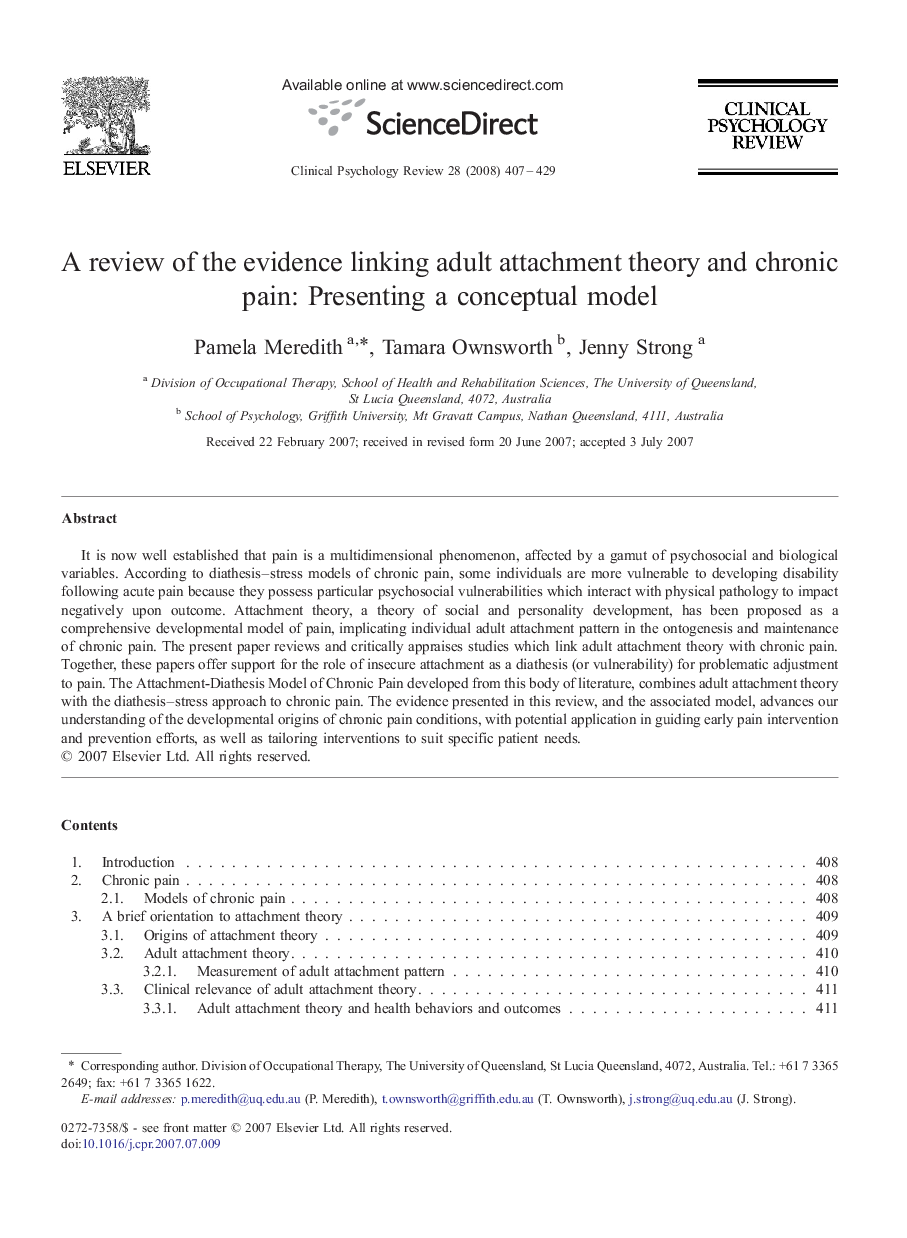| Article ID | Journal | Published Year | Pages | File Type |
|---|---|---|---|---|
| 903978 | Clinical Psychology Review | 2008 | 23 Pages |
It is now well established that pain is a multidimensional phenomenon, affected by a gamut of psychosocial and biological variables. According to diathesis–stress models of chronic pain, some individuals are more vulnerable to developing disability following acute pain because they possess particular psychosocial vulnerabilities which interact with physical pathology to impact negatively upon outcome. Attachment theory, a theory of social and personality development, has been proposed as a comprehensive developmental model of pain, implicating individual adult attachment pattern in the ontogenesis and maintenance of chronic pain. The present paper reviews and critically appraises studies which link adult attachment theory with chronic pain. Together, these papers offer support for the role of insecure attachment as a diathesis (or vulnerability) for problematic adjustment to pain. The Attachment-Diathesis Model of Chronic Pain developed from this body of literature, combines adult attachment theory with the diathesis–stress approach to chronic pain. The evidence presented in this review, and the associated model, advances our understanding of the developmental origins of chronic pain conditions, with potential application in guiding early pain intervention and prevention efforts, as well as tailoring interventions to suit specific patient needs.
